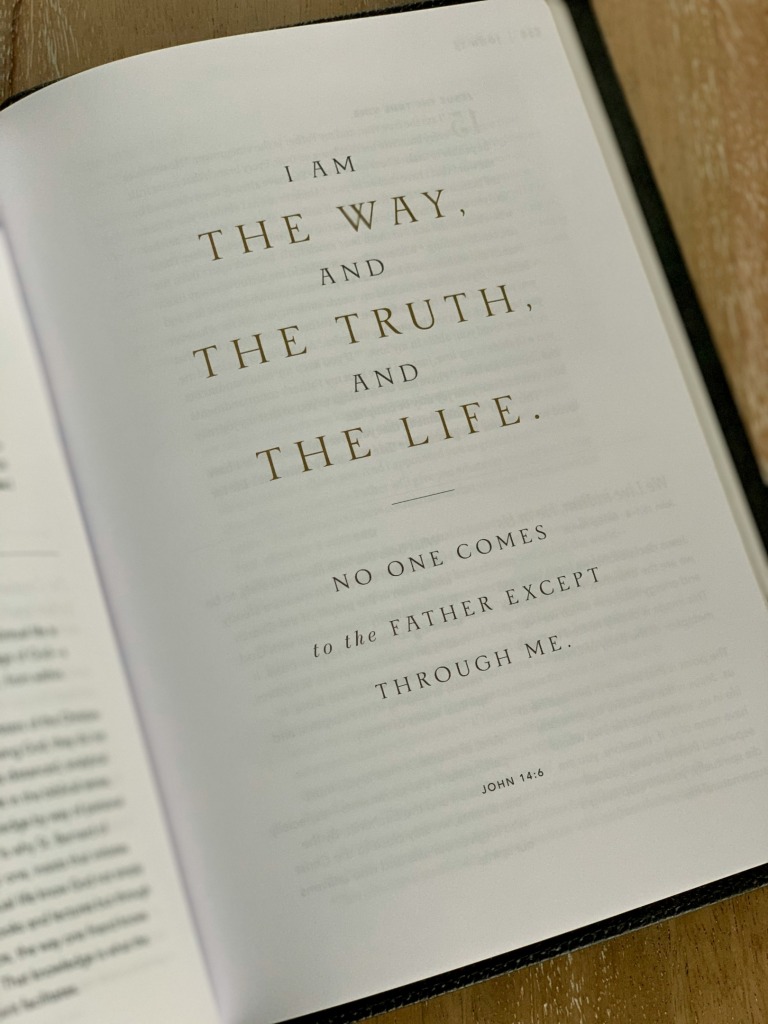With so many religions, cults and philosophies in this world, it can be hard to cling to God and seek after the truth of the gospel.
One of the enemy’s favorite tactics is confusing Christians with myriads of different religions along with the multitude of false gods and the religious ways of life that follow them.
I firmly believe that in order for Christians to stand firm in their faith, they must understand the false ideas that exist in other belief systems. It is integral to study other religions to be able to better communicate and articulate a strong argument for why pursuing Christianity and cultivating a strong foundation with Christ is of utmost importance.
Christians must have a firm grounding in the Bible, as the verse states in Hebrews 10:23, before looking into other belief systems so we can see where the truth of the Bible overpowers the falsehoods and lies that the enemy places in different cultures.
Christians must be able to make a defense for the faith as 1 Peter 3:15 states. Understanding where people from other religions are coming from not only helps with that goal but also provides an opportunity to tell them about the gospel. Paul showcases this in Acts 17:16-34 where he met with the people in Athens who worshiped an “unknown God.”
Paul used his knowledge of their beliefs and their religious directives to point the people to the gospel. If he had no idea what the people of Athens believed, how could he be effective in spreading the gospel?
The Washington University in Saint Louis sheds light on the subject, stating that at its core value, religion is a topic that everyone grapples with at some point in their life. So instead of a hostile argument, we should approach understanding how the gospel compares to other doctrines with a calm and understanding manner in order to be able to effectively communicate and minister to the unsaved.
This down-to-earth understanding of another’s beliefs is a vital credo when witnessing to others about the topic of religion. Failing to create meaningful communication between people of opposing beliefs causes a divide and discourages the opportunity for a respectful conversation. This divide also does not bode well for reinforcing each side’s beliefs, as valuable communication is lacking.
After establishing a solid foundation in the truth of the gospel and garnering a respect for people who hold to other belief systems, then we can move into debate territory. The International Misson Board uses Islam as an example of why it is important for Christians to have a basic understanding of other religions.
“Muslims use almost all the same theological vocabulary as Christians, but they understand different things by those words. For example, Islam agrees that Jesus is the Messiah, was born of a virgin, lived a sinless life, is alive in heaven today, and will come again at the end of history. However, Islam explicitly denies that Jesus was God in human flesh, that he died on the cross, that he atoned for our sins, and that he is the only Savior for sinners.”
Imagine having a debate with a Muslim. If you do not know the ins and outs of Islam, then you would be flabbergasted to know that they highly respect Jesus, but only as a prophet. Lacking this sort of knowledge will not help you lead Muslims to Christ and leaves your argument vulnerable to a counterattack that can shatter your perception of Jesus.
Alex O’Connor, a devout atheist, took part in a debate with 25 Christians, each from different denominations. Every time one of them came up to him to refute his claims about the Bible, he quoted Scripture to flatline their argument. They did not consider his beliefs and when their own weapon was used against them, they were left fumbling for words which reinforced O’Connor’s atheistic ideologies.
So, if O’Connor can study Christianity to debate Christianity, then we can certainly adopt the same strategy to refute other religions in a respectful manner with the goal of leading others to Christ.
Paul says in Colossians 4:6, “Let your speech always be gracious, seasoned with salt, so that you may know how you ought to answer each person.”
I know for myself that I am going to pour more time into understanding other religions because I want to know how the truth and the validity of the Bible prevails over false teachings, which in turn, will also help with communicating to others the gospel and strengthening my relationship with Christ in the process.
Warden is the opinion editor for the Liberty Champion.
